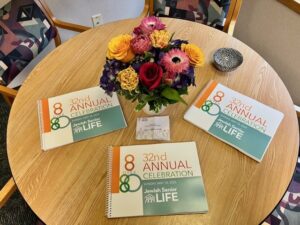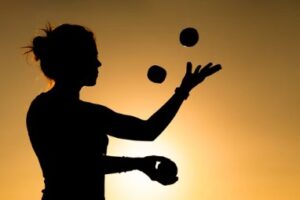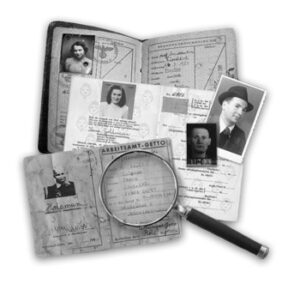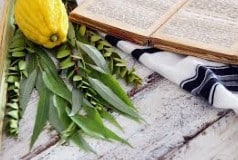AND SO…WE SING
The celebration of the Jewish holidays has always been rooted in the duality of joy and sorrow, hope and suffering. Throughout Jewish history, these moments of festivity and reflection have been interwoven with periods of persecution, displacement, and unspeakable atrocities. This tension between the obligation to celebrate and the awareness of human suffering is at the heart of what it means to live with faith in a broken world.
As we commemorated the one-year memorial of October 7, 5785 this past week at Congregation Shaarey Zedek, our thoughts continue to be with the hostages and their families, and our Israeli family and friends who are deprived of the joy of celebration. Our grief casts a pall over our festivals which can feel hollow or even unjustifiable. How do we gather in happiness when others are enduring unimaginable pain? There is no simple answer, but it lies in the nature of Jewish tradition itself.
Jewish holidays are not merely moments of individual or collective happiness—they are also acts of remembrance, resilience, and resistance. Passover, for example, is a celebration of freedom, and a time to recall the bitter years of slavery in Egypt. Even as Jews celebrate our liberation, we taste the bitter herbs of oppression to remember those still enslaved. Similarly, on Yom Kippur, while the focus is on personal atonement, there is also an acknowledgment of the suffering in the world, reflected in the prayers for healing and peace.
I look to our residents in moments of celebration. Jews are called not to forget the suffering of others, but to integrate that awareness into our observances. Joy in Jewish tradition is not naive or detached from the world’s pain; rather, it is an act of hope, an affirmation of life in the face of death, and a commitment to justice even when it seems unreachable.
We learn from Holocaust survivors that celebrating in the face of horror can be seen as an act of defiance against those who seek to destroy our Jewish spirit, the human spirit. It’s a way of saying that, despite the darkness, life will continue, and the values of love, community, and faith will not be extinguished. At the same time, these celebrations must be tempered with a profound sense of solidarity and responsibility toward those who are suffering. I will always remember that Anne Frank and her family who celebrated Chanukah by lighting the candles while hiding in the darkened attic.
During these upside-down times, celebrations become more than festive gatherings; they are opportunities for prayer, reflection, and action. On holidays, Jews pray for the release of captives, for the end of violence, for peace to come to Israel and the world. These moments can also serve as calls to action through advocacy, humanitarian support, or simply raising awareness of the plight of those who suffer.
In this chai light, Jewish celebrations are not about turning a blind eye to the horrors of the world but about holding both joy and grief in the same breath. The breaking of the fast on Yom Kippur, for example, can become a moment to not only reflect on the blessings of food and freedom but also to remember and honor those who are deprived of both.
So how do we celebrate during these times of great suffering? The war remains an open wound, a source of aching soreness. But in our discomfort, we find the truest form of faith, one that doesn’t shy away from the pain but embraces the responsibility to weave and carry our joy and sorrow together. In doing so, our celebrations become acts of empathy and remembrance, spaces where we can hold onto hope even as we acknowledge the reality of those who are suffering.
And so, we celebrate not in ignorance of the suffering around us, but in defiance of it. We celebrate with heavy hearts, aware of the hostages, the victims, the tortured, and the silenced. We don’t let go of joy, because joy is a form of survival. And as we celebrate, we can commit ourselves to the relentless pursuit of justice and peace, knowing that the freedom and safety of our people, must be our ultimate goal.
https://www.youtube.com/watch?v=oPGnOelGrTY
G’mar chatimah tovah May you be sealed in the Book of Life.
Shabbat Shalom









